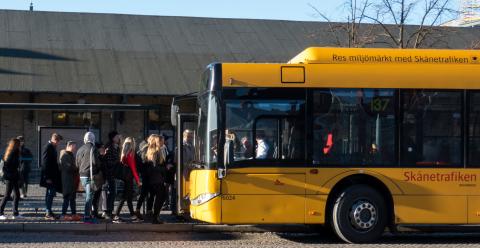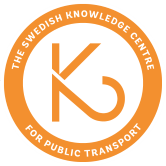Article highlighted
How passengers choose their journey in public transport

Knowledge about passengers preferences is important as it can help guiding the prioritisation between different measures when public transport and infrastructure are developed and planned. Ulrik Berggren has used a new methodology to measure and model the behaviour of public transport passengers.
“Public transport passengers are prepared to walk or cycle much longer to reach a line with extra departures or a connection with fewer transfers”, says Ulrik Berggren.
It is also valuable for transport planners to be able to make reliable predictions of how different passengers will react to changes and disturbances in traffic. For example, Ulrik’s research shows that older passengers wish to avoid transfers to an even greater extent compared to younger travellers. Passengers who have several routes to choose from particularly value predictability when choosing how to travel.
“Younger men seem to make greater use of digital information about departure times before making their journey, compared to other travellers. This helps them reduce their total travel time”, Ulrik explains.
The pandemic may have contributed to the fact that travellers today have a lower tolerance for crowding compared to before, and therefore they are increasingly interested in receiving updated information on delays and expected crowding levels.
“Well-informed and prepared travellers will also experience less waiting time when using public transport”, Ulrik says.
You can read more in Ulrik Berggrens PhD thesis Passengers’ choices in complex public transport systems – a study of revealed behaviour measurement methods.
Contact
Ulrik Berggren, PhD student at the Division of Environmental and Energy Systems Studies, LTH, Lund University
